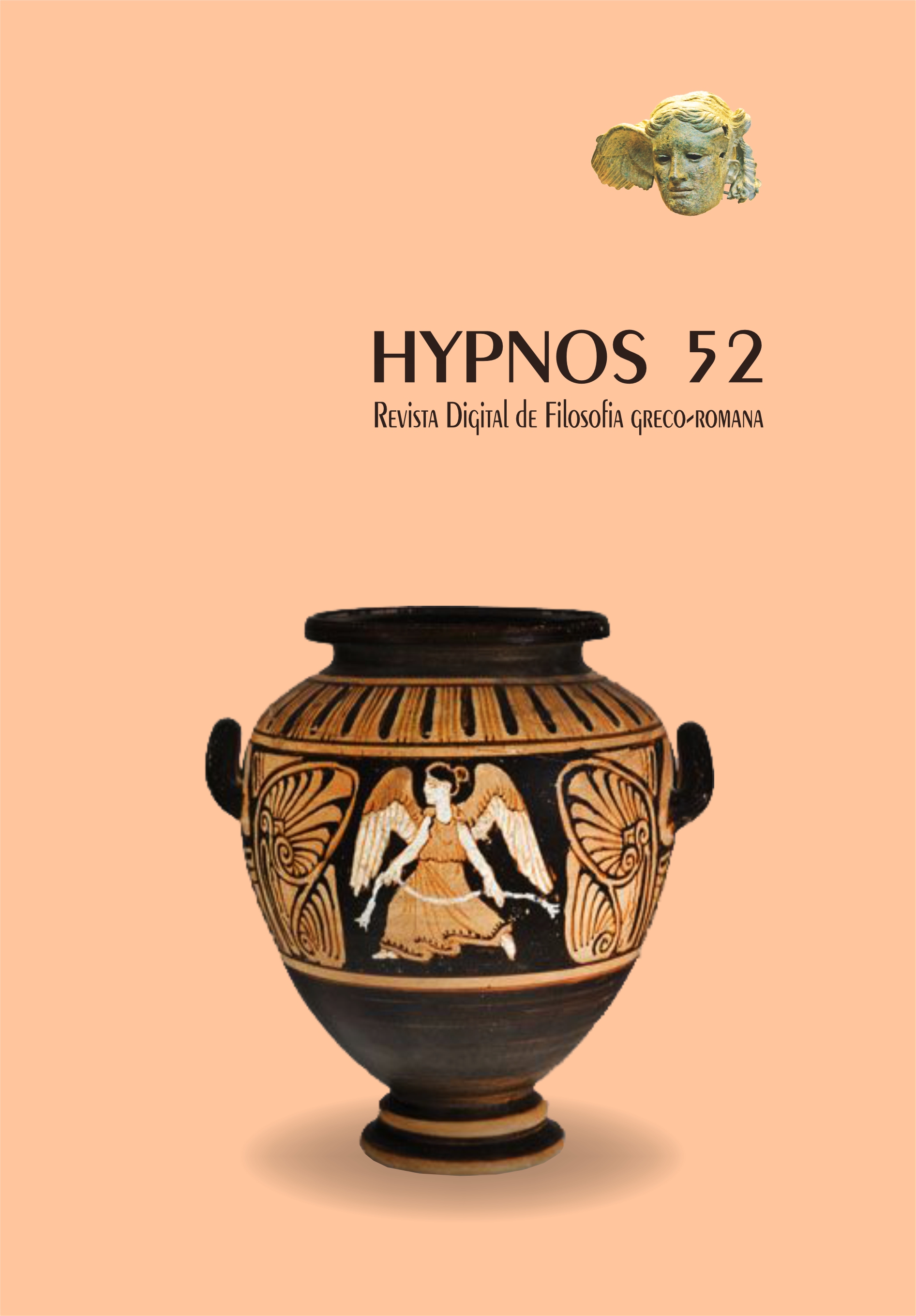Akrasia and Dispositional Conflict in Seneca’s Medea
Keywords:
Akrasia, Stoicism, Medea, SenecaAbstract
This article proposes an akratic interpretation of Seneca’s Medea that views the conflict as a battle between two dispositions within the ruling principle: one oriented toward right reason, or Zeus’ will, and the other toward the opinion. This interpretation relies on Richard Joyce’s analysis of Euripides’ Medea, which characterizes akrasia as a conflict arising from the autonomy of the ruling principle, or hegemonikon, and Irene Liu’s dispositional thesis of the hegemonikon, which contends for a reading of the Stoic Sage that goes beyond the traditional views. The present is an attempt to challenge analyses that deny the possibility of akrasia in the Stoic doctrine and provide an alternative perspective for studying the phenomenon of incontinence, which is so common among human beings, outside of Aristotelian motivational theory, and Socratic intellectualism.
References
Arnim, H. von. (1978) Stoicorum Veterum Fragmenta. Teubner, Leipzig.
Boeri, M. D., Salles, R. (2018). Los filósofos estoicos. Ontología, lógica, física y ética. Ediciones Universidad Alberto Hurtado.
Brennan, T. (2005). The Stoic Life. Emotions, Duties and Fate. Oxford University Press.
Epícteto. (1928) Discourses. William Abbott Oldfather ed., Loeb Classical Library.
Gerson, L. P. (2016) “Plotinus and the Platonic response to Stoicism”, in: J. Sellars, ed. The Routledge Handbook of the Stoic Tradition, Routledge, 44-55.
Griffiths, E. (2006). Medea. Routledge.
Inwood, B. (1985). Ethics and Human Action in Early Stoicism. Oxford University Press.
Inwood, B. (1993). “Seneca and Psychological Dualism.”, in: J. Brunschwig & M. C. Nussbaum, ed. Passions & Perceptions: Studies in Hellenistic Philosophy of Mind: Proceedings of the Fifth Symposium Hellenisticum, Cambridge University Press, 147–150.
Joyce, R. (1995). “Early Stoicism and Akrasia.”, Phronesis 40, 315–335.
Liu, I. (2008). “Nature and Knowledge in Stoicism: On the Ordinariness of the Stoic Sage.” Apeiron 41, 247–276.
Menn, S. (1995). “Physics as a Virtue”, in Proceedings of the Boston Area Colloquium of Ancient Philosophy 11, 1-34.
Nussbaum, M. C. (1994). The Therapy of Desire: Theory and Practice in Hellenistic Ethics. Princeton University Press.
Seneca. (2000) Epistles 1-65. Traslated by R. M. Gummere. Seneca IV. Loeb Classical Library.
Seneca. (2000) Epistles 66-92. Traslated by R. M. Gummere. Seneca V. Loeb Classical Library.
Seneca. (2000) Epistles 93-104. Traslated by R. M. Gummere. Seneca VI. Loeb Classical Library.
Seneca. (2002) Hercules, Trojan Women, Phoenician Women, Medea, Phaedra. Traslated by J. G. Fitch. Seneca VIII Tragedies. Loeb Classical Library.
Seneca. (2003). Moral Essays I. Traslated by J. W. Basore. Seneca I. Loeb Classical Library.
Westman, Rolf and Pohlenz, Max. (1958), Plutarchi moralia, Teubner.
Downloads
Published
Issue
Section
License
Copyright (c) 2024 Hypnos Journal

This work is licensed under a Creative Commons Attribution-NonCommercial-ShareAlike 4.0 International License.
The contents of the manuscript have been tacitly or explicitly approved by the responsible authorities where the research was carried out.
Upon acceptation of the manuscript, the author agrees to allow its publication by Hypnos, declining pecuniary gains due from copyright. If the manuscript is published later in other media, the author agrees to always give credits of its first publication in Hypnos.
If the submitted document includes figures, tables, or large sections of text previously published, the author declares himself responsible for having obtained permission of the original copyright owners of these items for both the online and printed publication of this journal. Credits for copyrighted material must be properly attributed in the manuscript.


 A revista
A revista 